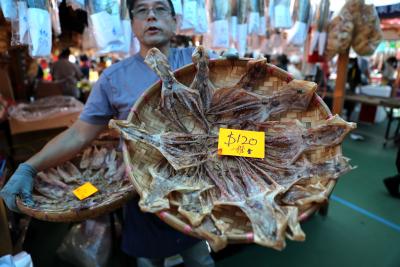Australia urges G20 action on wildlife wet markets
By IANS | Published: April 23, 2020 03:28 PM2020-04-23T15:28:44+5:302020-04-23T15:40:24+5:30
The Australian government on Thursday called on the G20 countries to take action on wildlife wet markets, calling them a "biosecurity and human health risk".

Australia urges G20 action on wildlife wet markets
Canberra, April 23 The Australian government on Thursday called on the G20 countries to take action on wildlife wet markets, calling them a "biosecurity and human health risk".
However, Agriculture Minister David Littleproud said he was not targeting all food markets.
"A wet market, like the Sydney fish market, is perfectly safe," the BBC quoted the Minister as saying to the Australian Broadcasting Corporation on Thursday morning.
"But when you add wildlife, live wildlife, exotic wildlife - that opens up human risk and biosecurity risk to the extent we have seen.
"And in fact, China themselves reported this to the World Organisation for Animal Health, that that was the cause of COVID-19."
Littleproud said he wanted to "get the science" first, but said: "Even our chief veterinary officer is telling us that he believes they (wildlife wet markets) may need to be phased out."
"Wet markets" are marketplaces that sell fresh food such as meat and fish, the BBC reported.
But some also sell wildlife - and it's thought the coronavirus may have emerged at the Huanan wet market in Wuhan, the chinese city where the coronavirus pandemic originated, that sold live, "exotic" animals, including foxes, wolf cubs, civets, turtles and snakes.
The exact origin of the COVID-19 is not known, but the evidence suggests it came from an animal.
According to the World Organisation for Animal Health, COVID-19 is a "close relative" of other viruses found in horseshoe bats.
In January, China issued a temporary ban in the trade in wild animals, as it did during the Sars outbreak.
A month later, the government "thoroughly banned the illegal trading of wildlife" and "eliminated the consumption of wild animals to safeguard people's lives and health".
( With inputs from IANS )
Open in app